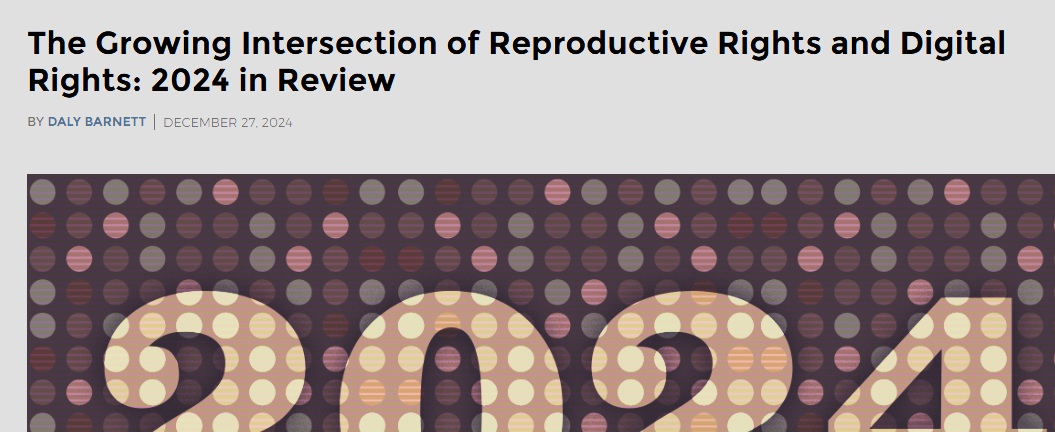Reproductive Rights in the Digital Surveillance Era: When Technology Becomes a Tool of Oppression

In the post-Roe era, digital privacy has suddenly become a matter of life and death for abortion seekers. Period tracking apps, search histories, and location data can all become evidence for prosecution. This article analyzes how digital surveillance threatens reproductive freedom and how women can protect their digital privacy.
Related Topics
Two years after the Supreme Court overturned Roe v. Wade, digital privacy has become a critical battleground for reproductive rights. From period tracking apps to search histories, from location data to social media chats, women’s digital footprints are being weaponized to prosecute those seeking, providing, or supporting abortion care. This convergence of technology and patriarchy has created an unprecedented surveillance network.
The New Reality of Digital Surveillance
The Betrayal of Period Tracking Apps
Millions of women use apps to track their menstrual cycles, with the most popular, Flo, boasting 43 million active users. However, these seemingly harmless health tools have become potential surveillance devices:
- Data breach risks: Most apps’ privacy policies allow them to capture, own, and remotely store users’ personal data
- Commercial exploitation: The Federal Trade Commission found that Flo promised to protect user privacy but shared data with marketing firms including Facebook and Google
- Legal subpoenas: Data stored on servers can be subpoenaed as court evidence
After Roe was overturned, many women immediately deleted period tracking apps, but merely deleting the app doesn’t erase already collected data.
The Dangers of Location Data
Law enforcement can obtain location information through multiple channels:
Geofence Warrants
- Compel companies to produce information on all devices within a geographic area during a specific time period
- Can identify everyone who spent time near an abortion clinic
Keyword Warrants
- Pull data on everyone who searched for certain terms
- Include users searching for abortion care information
Data Broker Loophole
- Law enforcement can bypass court approval and buy sensitive data directly from data brokers
- This practice is completely legal, requiring no judicial oversight
Real Cases: The Weaponization of Digital Evidence
Nebraska Case
In 2022, Facebook chat logs were used to prosecute an abortion seeker and her mother who helped her. Private conversations became key evidence for conviction.
United Kingdom Case
Police obtained a woman’s Google search history during an investigation into abortion pill use beyond the legal limit.
Texas Case
Text messages and screenshots from a group chat were used as evidence in a lawsuit to prove a woman self-managed an abortion at home.
These cases demonstrate that everyday digital communication tools are being systematically used to surveil and prosecute women.
Disproportionate Impact
Race and Class Dimensions
Digital surveillance particularly affects marginalized groups:
- Black and brown women already face over-surveillance and over-policing, now face greater risks
- Low-income women rely more on free apps and services, which typically have worse privacy protections
- Immigrant women face additional surveillance layers, including immigration enforcement data sharing
Climate of Fear
The surveillance threat creates a pervasive climate of fear:
- Women afraid to seek legal reproductive healthcare
- Medical providers delay or refuse care for fear of prosecution
- Support networks collapse due to surveillance fears
Tech Company Responses: Promises vs. Reality
Google’s Empty Promises
In 2022, Google promised to delete location data records from users visiting medical facilities, including abortion clinics. In December 2023, it announced it would only save location history on users’ devices. However:
- Google has yet to fully implement either promise
- In January 2024, the Electronic Privacy Information Center filed a complaint with the FTC about Google’s harmful location data retention practices
- Self-regulation is generally unreliable in this sector
HIPAA’s Limitations
In 2024, the Biden administration finalized a rule modifying HIPAA to strengthen reproductive health information protections. But:
- Apps tracking fitness goals, menstruation, and mental health are not covered by HIPAA
- Even when collecting sensitive health information, these apps remain unregulated
- Most health apps women use are completely outside legal protection
Protection Strategies: Digital Self-Defense Guide
Immediate Actions
App Settings
- Limit data sharing on apps
- Turn off or limit location services
- Opt out of personalized and targeted ads
Communication Security
- Use end-to-end encrypted communication tools (like Signal)
- Avoid discussing sensitive topics on social media or unencrypted platforms
- Use privacy-focused search engines (like DuckDuckGo)
Data Management
- Regularly delete search and browsing history
- Use VPN to hide network activity
- Consider using cash for sensitive medical services
Long-term Protection Measures
Digital Literacy
- Understand privacy policies of different apps and services
- Learn to identify and avoid data collection traps
- Educate community members about digital security
Collective Action
- Support legislation strengthening privacy laws
- Participate in campaigns demanding better privacy protection from tech companies
- Build secure support networks
The Need for Legal and Policy Reform
Federal-Level Action
Comprehensive federal privacy law needed:
- Limit data collection and retention
- Prohibit selling health data to law enforcement
- Require all health-related apps to meet privacy standards
State-Level Protection
Some states are taking action:
- California Consumer Privacy Act (CCPA) provides some protection
- Several states considering laws specifically protecting reproductive health data
- But broader state-level action needed
Technology as a Double-Edged Sword
Empowerment Tools
Technology can also be a tool for protection and empowerment:
- Encrypted communications protect private conversations
- Anonymous browsers provide information access
- Decentralized networks reduce surveillance risks
Innovative Solutions
Developers are creating privacy-preserving alternatives:
- Period tracking apps that store data locally
- Health tools that don’t collect personal information
- Secure communication platforms designed for high-risk users
Global Perspective: The Spread of Surveillance
US practices are influencing globally:
- Other countries may follow suit using digital surveillance to restrict reproductive rights
- Multinational tech companies’ practices affect global users
- International solidarity and information sharing become crucial
Conclusion: Privacy Is Freedom
In the digital age, privacy rights and reproductive rights have become inseparable. When every search, every app use, every location record can become prosecution evidence, digital privacy is no longer a technical issue but a fundamental human rights issue.
Protecting digital privacy is not just individual responsibility but requires collective action, legal reform, and technological innovation. Only when we recognize the threat digital surveillance poses to reproductive freedom and take action to protect privacy rights can we ensure technology serves liberation rather than oppression.
As the Electronic Frontier Foundation says: “In the post-Roe era, your data is your life.” Protecting digital privacy is protecting reproductive freedom, protecting women’s fundamental human rights.
This article synthesizes research from the Electronic Frontier Foundation, Privacy International, and the American Bar Association
Related Articles

Gender Bias in AI: The 2024 Wake-Up Call
New research reveals 44% of AI systems show gender bias, while women's underrepresentation in tech is making it worse. From ChatGPT to image generators, AI is reinforcing harmful gender stereotypes.

Fighting the Tyranny of 'Niceness': Why We Need Difficult Women
This article critiques the expectations of 'perfection' and 'likability' in contemporary feminism, calling for recognition of the complexity and contradictions within feminism, and embracing those 'difficult women' who are nonconformist, hard to categorize, but drive change.

From Suffrage Movements to #MeToo: The Enduring Global Fight for Gender Equality
This article traces the evolution of feminist movements from the 19th-century suffrage campaigns to the digital activism of the #MeToo era. It explores the four waves of feminism, their historical contexts, and the persistent global challenges to gender equality, including political representation, reproductive rights, and social stigma.
Support Our Work
If this content has been helpful to you, please consider supporting us to continue curating quality feminist resources
☕ Buy me a coffeeComments & Discussion
Share your views and feelings about this article
Join the Discussion
Share your views and feelings about this article
Loading comments...